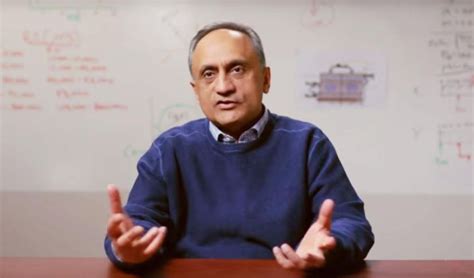A Quote by Grover Norquist
The welfare state creates its own victim/client constituency. By making individuals free and independent, we reduce the need for 'charity' to those truly needy citizens what we can certainly afford to help through real charity.
Related Quotes
We often equate charity with visiting the sick, taking in casseroles to those in need, or sharing our excess with those who are less fortunate. But really, true charity is much, much more. Real charity is not something you give away; it is something that you acquire and make a part of yourself. And when the virtue of charity becomes implanted in your heart, you are never the same again.
When we want to help the poor, we usually offer them charity. Most often we use charity to avoid recognizing the problem and finding the solution for it. Charity becomes a way to shrug off our responsibility. But charity is no solution to poverty. Charity only perpetuates poverty by taking the initiative away from the poor. Charity allows us to go ahead with our own lives without worrying about the lives of the poor. Charity appeases our consciences.
My views on charity are very simple. I do not consider it a major virtue and, above all, I do not consider it a moral duty. There is nothing wrong in helping other people, if and when they are worthy of the help and you can afford to help them. I regard charity as a marginal issue. What I am fighting is the idea that charity is a moral duty and a primary virtue.
It is our duty to prefer the service of the poor to everything else and to offer such service as quickly as possible. If a needy person requires medicine or other help during prayer time, do whatever has to be done with peace of mind. Offer the deed to God as your prayer.... Charity is certainly greater than any rule. Moreover, all rules must lead to charity.
While business advertises, charity is taught to beg. While business motivates with a dollar, charity is told to motivate with guilt. While business takes chances, charity is expected to be cautious. We measure the success of businesses over the long term, but we want our gratification in charity immediately. We are taught that a return on investment should be offered for making consumer goods, but not for making a better world.
Only in truth does charity shine forth, only in truth can charity be authentically lived. Truth is the light that gives meaning and value to charity. That light is both the light of reason and the light of faith, through which the intellect attains to the natural and supernatural truth of charity: it grasps its meaning as gift, acceptance, and communion. Without truth, charity degenerates into sentimentality. Love becomes an empty shell, to be filled in an arbitrary way.
The greatest obstacle to the welfare state is not greed but private charity that makes the welfare state irrelevant; the greatest obstacle to re-education of children in the name of the collective is allegiance to a higher power. More than that, the greatest obstacle to the state as god is an actual God above the state.
Certainly, by providing individuals coming out of institutions with ways to become productive citizens, we reduce recidivism. What that means is we reduce crime. There are fewer victims when individuals have options - when they have job skills, when they have life skills, we break the cycle of children following their parents into institutions.
What I love about the ministry of Jesus is that he identified the poor as blessed and the rich as needy...and then he went and ministered to them both. This, I think, is the difference between charity and justice. Justice means moving beyond the dichotomy between those who need and those who supply and confronting the frightening and beautiful reality that we desperately need one another.
I've voted for Republicans who were strong on defense, who believed in a free and open economy but who also understood that there's a place for government in our lives, that government has a responsibility to those of our citizens who are in need and those of our citizens who are needy of health care.
The duty of the State toward the citizen is the duty of the servant to its master.... One of the duties of the State is that of caring for those of its citizens who find themselves the victims of such adverse circumstances as makes them unable to obtain even the necessities for mere existence without the aid of others.... To these unfortunate citizens aid must be extended by government--not as a matter of charity but as a matter of social duty.


































